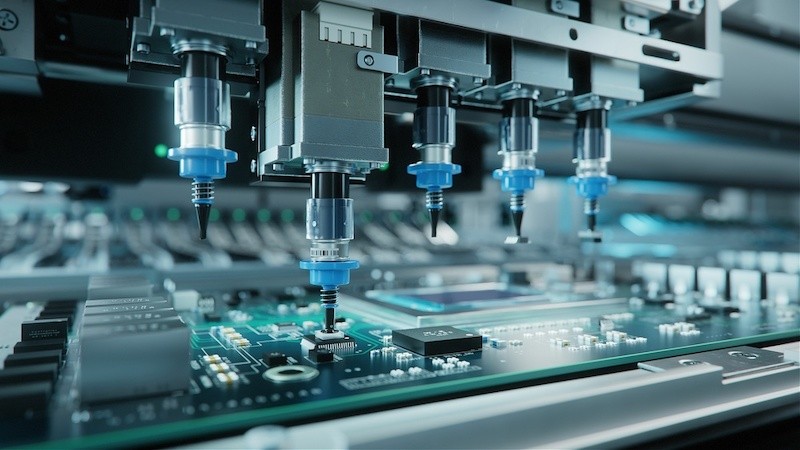The integration of smart factory concepts in turnkey PCB assembly marks a significant leap in the manufacturing industry. As these concepts become more prevalent, it is crucial to understand their impact on the production process. The smart factory represents a new era where advanced technology and automation come together to enhance efficiency and quality. These innovations are especially relevant in the field of turnkey PCB assembly, offering numerous benefits to both manufacturers and clients.
In this article, we will delve into the various aspects of smart factory concepts and how they are revolutionizing turnkey PCB assembly. We will explore the technologies involved, the advantages they bring, and the future potential for the industry. By the end, you’ll have a comprehensive understanding of why these concepts are becoming indispensable in modern manufacturing.

Understanding Smart Factory Concepts
What is a Smart Factory?
A smart factory is an advanced manufacturing facility that leverages cutting-edge technologies such as the Internet of Things (IoT), artificial intelligence (AI), and robotics to optimize production processes. These technologies enable real-time data collection, analysis, and decision-making, leading to improved efficiency and reduced waste.
Key Technologies in Smart Factories
The backbone of any smart factory includes several critical technologies:
- Internet of Things (IoT): IoT devices facilitate communication between machines, allowing for seamless data exchange and process automation.
- Artificial Intelligence (AI): AI algorithms analyze data to optimize production schedules and predict maintenance needs.
- Robotics: Automated robots handle repetitive tasks, ensuring precision and speed.
Turnkey PCB Assembly and Its Importance
What is Turnkey PCB Assembly?
Turnkey PCB assembly refers to a comprehensive manufacturing service where the provider manages all aspects of the production process, from procurement of components to final assembly and testing. This streamlined approach offers numerous advantages, including faster production times and reduced costs.
Benefits of Turnkey PCB Assembly
By choosing turnkey PCB assembly, companies can enjoy several benefits:
- Reduced overhead costs by outsourcing the entire production process.
- Consistent quality assurance throughout the manufacturing process.
- Faster time-to-market due to streamlined operations.
For more insights on how turnkey PCB assembly improves quality, visit this article.
Integration of Smart Factory Concepts in Turnkey PCB Assembly
Why Integration is Essential
The integration of smart factory concepts into turnkey PCB assembly is essential for maximizing productivity and quality. By incorporating advanced technologies, manufacturers can ensure a higher degree of precision and efficiency in the production process.
How Smart Factories Enhance Turnkey PCB Assembly
Smart factories bring several enhancements to turnkey PCB assembly:
- Real-time monitoring of production, allowing for immediate adjustments.
- Automated quality control processes, ensuring consistent product standards.
- Data-driven decision-making, improving resource allocation and process optimization.
Learn more about how turnkey helps reduce overhead in this insightful piece.
Future Prospects of Smart Factory Concepts in PCB Assembly
Trends and Innovations
The future of smart factory concepts in turnkey PCB assembly is promising, with several trends and innovations on the horizon:
- Increased adoption of AI and machine learning for predictive analysis and maintenance.
- Expansion of IoT applications for enhanced connectivity and automation.
- Development of more sophisticated robotics for complex assembly tasks.
The Importance of Adaptation
To stay competitive, manufacturers must adapt to these emerging trends. By embracing smart factory concepts, companies can achieve greater efficiency, cost savings, and product quality.
For more details on automation in manufacturing, see this automation in manufacturing article.
Case Studies: Success Stories of Smart Factories
Leading Examples
Several companies have successfully integrated smart factory concepts into their turnkey PCB assembly processes. These case studies highlight the transformative power of technology in manufacturing:
- Company A: Achieved a 30% increase in production efficiency through IoT and AI integration.
- Company B: Reduced defect rates by 20% with automated quality control systems.
- Company C: Improved supply chain management with real-time data analytics.
For more on consistent product quality, check this consistent product quality article.
Challenges and Solutions in Implementing Smart Factory Concepts
Common Challenges
While the benefits are clear, implementing smart factory concepts in turnkey PCB assembly can present challenges:
- High initial investment costs for technology integration.
- Complexity in transitioning from traditional manufacturing to smart systems.
- Need for skilled workforce to manage and operate advanced technologies.
Solutions and Strategies
To overcome these challenges, companies can adopt the following strategies:
- Invest in workforce training to equip employees with the necessary skills.
- Implement phased technology integration to manage costs and complexity.
- Collaborate with technology partners for expert guidance and support.
For insights on turnkey manufacturing strategies, visit this external resource.
Conclusion: Embracing the Future
The integration of smart factory concepts in turnkey PCB assembly is not just a trend; it is the future of manufacturing. By embracing these technologies, companies can achieve unprecedented levels of efficiency, quality, and competitiveness. As the industry continues to evolve, those who adapt will lead the way in innovation and success.

FAQ
What are smart factory concepts?
Smart factory concepts involve the use of advanced technologies like IoT, AI, and robotics to optimize manufacturing processes.
Why is turnkey PCB assembly important?
Turnkey PCB assembly simplifies the manufacturing process by managing all aspects from component procurement to final testing, ensuring efficiency and quality.
How do smart factory concepts benefit PCB assembly?
They enhance production efficiency, improve quality through automation, and enable data-driven decision-making for optimized operations.


